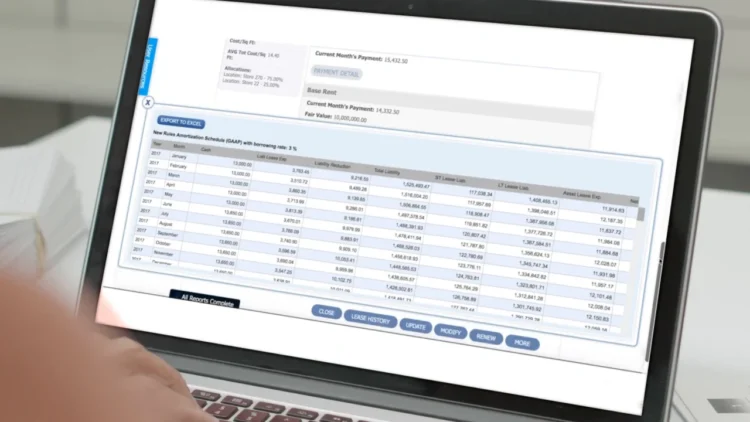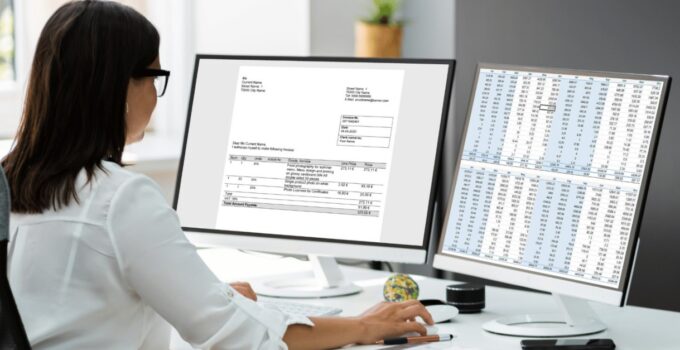In today’s complex business landscape, Certified Public Accountants (CPAs) and controllers are under increasing pressure to ensure accuracy, compliance, and efficiency in financial reporting and management. Real estate lease administration presents a significant challenge, given the complexities of lease terms, renewal options, and financial implications. However, the advent of real estate lease administration software offers a powerful solution.
This technology streamlines the management of lease portfolios, ensuring compliance with accounting standards and providing strategic insights into financial commitments.
This article explores the multifaceted benefits that CPAs and controllers can derive from integrating real estate lease administration software into their operational toolkit.
Page Contents
Enhanced Accuracy and Compliance

Source: hubler.app
The introduction of new lease accounting standards, such as ASC 842 in the United States and IFRS 16 internationally, has added layers of complexity to lease accounting and reporting. These standards require leases to be recognized on the balance sheet, increasing the need for meticulous record-keeping and reporting.
How Lease Administration Software Helps:
Lease administration software automates the calculation of lease liabilities and right-of-use assets, ensuring accuracy and consistency in financial statements. It keeps track of lease terms, payments, and expiration dates, automatically updating financial records in compliance with current accounting standards.
This automation significantly reduces the risk of human error, ensuring that CPAs and controllers can provide stakeholders with reliable financial information.
Streamlined Lease Management Processes
Managing a portfolio of real estate leases involves juggling numerous tasks, including tracking payment schedules, lease renewals, and termination clauses. The manual management of these tasks is not only time-consuming but also prone to errors.
How Lease Administration Software Helps:
Lease administration software centralizes all lease-related information in a single platform, providing CPAs and controllers with a holistic view of the lease portfolio. Automated alerts for critical dates prevent missed deadlines, while comprehensive databases allow for quick access to any lease document or detail.
This streamlining of lease management processes frees up valuable time, allowing financial professionals to focus on more strategic activities.
Improved Strategic Decision Making

Real estate leases often represent significant financial commitments for businesses. Making informed decisions about these commitments requires a deep understanding of the lease portfolio’s impact on the company’s financial health.
How Lease Administration Software Helps:
Advanced reporting features in lease administration software enable CPAs and controllers to analyze lease obligations and their effects on financial metrics. Scenario planning tools allow for the evaluation of different strategies, such as lease renewals or terminations, and their potential financial impacts.
This insight supports strategic decision-making, helping businesses optimize their real estate portfolio in alignment with their financial goals.
Increased Operational Efficiency
The administrative burden of lease management can be substantial, especially for businesses with extensive real estate portfolios. Traditional methods of lease management, relying on spreadsheets or manual record-keeping, are not only inefficient but also limit the ability to quickly adapt to changes.
How Lease Administration Software Helps:
By automating routine tasks and consolidating lease data, lease administration software significantly enhances operational efficiency. The ability to quickly generate reports, access lease information, and calculate financial metrics reduces the time spent on administrative tasks.
Moreover, cloud-based solutions offer the flexibility to access the lease portfolio from anywhere, facilitating remote work and collaboration among team members.
Cost Savings and Financial Optimization

Source: una.com
Optimizing the costs associated with real estate leases requires a proactive approach to lease management, including the negotiation of favorable terms and the avoidance of unnecessary expenses such as late fees or penalties for missed renewal deadlines.
How Lease Administration Software Helps:
Lease administration software provides valuable data and analytics that can identify cost-saving opportunities, such as renegotiating lease terms or consolidating space. The software’s ability to monitor market trends and compare terms across the lease portfolio empowers CPAs and controllers to negotiate from a position of strength.
Additionally, the avoidance of late fees and penalties through timely lease management directly contributes to cost savings.
Conclusion

Source: finquery.com
For CPAs and controllers, real estate lease administration software is not just a tool for managing leases—it’s a strategic asset that enhances accuracy, efficiency, and compliance in lease accounting and management.
By automating complex calculations, streamlining administrative processes, and providing actionable insights into the financial implications of lease commitments, lease administration software enables financial professionals to navigate the challenges of real estate lease management with confidence.
In an era where financial transparency and strategic decision-making are paramount, integrating lease administration software into the financial management toolkit is a smart investment towards achieving business objectives and fostering sustainable growth.
If you’re interested in real estate lease administration software for your enterprise, try a demo of LeaseAccelerator first. LeaseAccelerator is a prominent name in lease administration and provides tools to manage real estate leases.





